The department has well equipped EM lab, Power Electronics lab, control systems lab, Measurement lab, Network lab and Simulation lab. The equipments are from standard reputed companies / suppliers viz. Kirloskar, Crompton & Greeves etc. the labs are spacious as per AICTE requirements and are located in ground floor of main building.
The department organizes planned industrial tours for the students of III EEE every year to companies like BHEL, power Stations viz. RTPS , VTPS , Sree Sailam HEPS , Steel Plants of Visakapatnam and Hospet etc. Also the department periodically organizes seminars, workshops expert lectures to make staff and students to keep in pace with latest developments in the field and state of art.
In addition to the excellent library and Digital library facilities in the college, the department has its department library with updated journals and manuals. These educational facilities coupled with encouragement, motivation above all serene environment provide Philip to our staff and students to do innovative and creative things. Thus , we in the department designed and fabricated various domestic and industrial working models viz. UPS, IG inverters etc clap switch, Burglar alarm and designed and fabricated “ Integrated Auto Traction System” working model. The advantages of this IATS are not only to detect and control the station and rail way gates but also dynamically check the continuity of the track which is relatively a new concept in our country. This ensures safety of passengers in addition to railway property.
The final year students developed a working model “ Micro controller Based Smart Energy Meter with Data Transmission” with special features Power Consumption Data Transmission Directly to substation concerned, Power theft prevention, HV / LV protection etc. We propose to suggest to the concerned CPDCL authorities for implementation after verifying commercial feasibility.
Some of the working models were selected and found placed in the exhibition organized by SRUJANA, PRAGNA etc. Most of the models won laurels by one and all.
The students presented papers at various seminars organized by various colleges in AP and other states. Some of them won first prize.
The faculty members are deputed to attend seminars , workshops organized by Osmania University , JNTU, NIT and IISC Banglore etc.
Under QIP our management is magnanimous to sponsor our staff to M.Tech programs 4 staff members completed M.Tech. The faculty of the department presented more than 6 technical papers in international conferences. The department offers technical and training support to the industries located in this region. Based on “Bridge Course Analysis” conducted by our department over a period of 12 months ( 2 spells ), we conducted courses for skills which are in high demand for our pre and final year students. This helps them to do well in “ placement interviews” etc.
As regards curriculum improvement program, our department has given number of suggestion to JNTU, most of them were adapted and introduced with Academic regulations course Structure.
The department has well equipped EM lab, Power Electronics lab, control systems lab, Measurement lab, Network lab , MPMC lab and Simulation lab. The equipments are from standard reputed companies / suppliers viz. Kirloskar, Crompton & Greeves etc. the labs are spacious as per AICTE requirements and are located in ground floor of main building. The department organizes planned industrial tours for the students of III EEE every year to companies like BHEL , power Stations viz. RTPS , VTPS , Sree Sailam HEPS , Steel Plants of Visakapatnam and Hospet etc.
Vision:
To impart quality technical education in the field of Electrical and Electronics Engineering enabling students to get employable both in the fields of government and private sectors and also encourage self-employability.
Mission:
⮚ M1: To educate students with core knowledge of Electrical and Electronics Engineering to excel in their professional career
⮚ M2: Provide hands-on experience through projects and industrial visits
⮚ M3: Offer skill-based development programs for continuous improvement
⮚ M4: Provide well equipped laboratories enabling students to learn concepts practically
⮚ M5: Organise talks with industry experts and entrepreneurs on a regular basis
The students of undergraduate program in Electrical & Electronics Engineering will have
PO-1: Engineering knowledge: Apply the knowledge of mathematics, science, engineering fundamentals and an engineering specialization to the solution of complex engineering problems.
PO-2: Problem analysis: Identify, formulate, review research literature and analyze complex engineering problems reaching substantiated conclusions using first principles of mathematics, natural sciences and engineering sciences.
PO-3: Design/development of solutions: Design solutions for complex engineering problems and design system components or processes that meet the specified needs with appropriate consideration for the public health and safety and the cultural, societal, and environmental considerations.
PO-4: Conduct investigations of complex problems: Use research-based knowledge and research methods including design of experiments, analysis and interpretation of data and synthesis of the information to provide valid conclusions.
PO-5: Modern tool usage: Create, select, and apply appropriate techniques, resources and modern engineering and IT tools including prediction and modeling to complex engineering activities with an understanding of the limitations.
PO-6: The engineer and society: Apply reasoning informed by the contextual knowledge to assess societal, health, safety, legal and cultural issues and the consequent responsibilities relevant to the professional engineering practice.
PO-7: Environment and sustainability: Understand the impact of the professional engineering solutions in societal and environmental contexts, and demonstrate the knowledge of, and need for sustainable development.
PO-8:Ethics: Apply ethical principles and commit to professional ethics and responsibilities and norms of the engineering practice.
PO-9: Individual and teamwork: Function effectively as an individual, and as a member or leader in diverse teams, and in multidisciplinary settings.
PO-10: Communication: Communicate effectively on complex engineering activities with the engineering community and with society at large, such as, being able to comprehend and write effective reports and design documentation, make effective presentations, and give and receive clear instructions.
PO-11: Project management and finance: Demonstrate knowledge and understanding of the engineering and management principles and apply these to one’s own work, as member and leader in a team, to manage projects and in multidisciplinary environments.
PO-12: Life-long learning: Recognize the need for, and have the preparation and ability to engage in independent and life-long learning in the broadest context to technological change.
PEO1: Achieve successful professional career in Electrical Engineering and allied disciplines.
PEO2: Pursue higher studies and continuously engage in upgrading the professional skills.
PEO3: Demonstrate professional & ethical values, effective communication skills and teamwork to solve issues related to profession, society and environment.
Electrical and Electronics Engineering Graduates will be able to:
PSO-1: Apply knowledge & competencies to analyze & design Electrical & Electronics circuits, control and power systems, machines & industrial drives.
PSO-2: Use software/hardware tools for the design, simulation and analysis of Electrical and Electronics Systems.


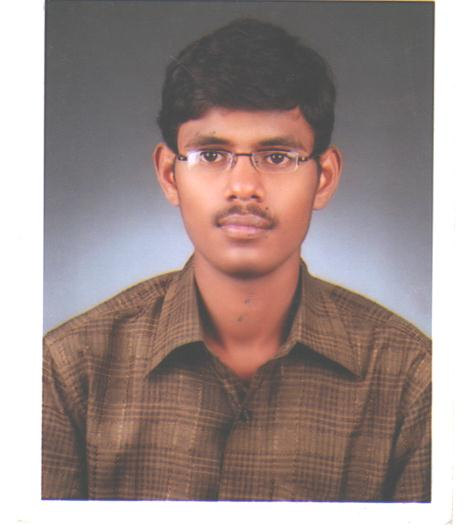
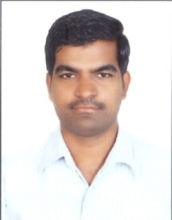
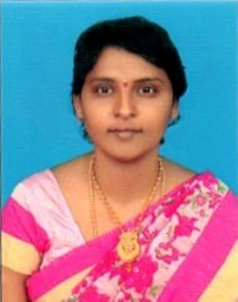

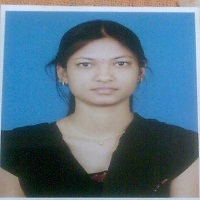




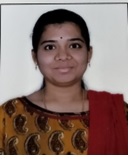
| S.NO | PROGRAM | COURSE CODE | COURSE NAME/LAB | LH/LAB NO | Equipments |
|---|---|---|---|---|---|
| 1 | EEE | EE304PC | Electrical Machines Lab - I | G-23, 24 | D.C. Motor 230V AC, 16.8A, DC Motor & Generator Set 230V DC 13A, 230V AC 20.5A Rheostat Tubular 300/350,OHMS,2A (HKS), Voltmeter (Portable MC,0-1.5/3v) (AE), Ammeter (AE-Portable MC, 0-5MA) (AE), Techometer contect type |
| 2 | EEE | EE402PC | Electrical Machines Lab - II | G-25 | 3 Ph Induction Motor 400 V DC, 4.75 A, 3 Ph Induction Motor Amplidine Set 400V AC Voltmeter (Portable MI,0-25/50v) (AE Techometer contect type, |
| 3 | EEE | EE506PC | Power Electronics Lab | G-26 | Half wave converters ,full wave converters,Cyclo convers,PATCH CARDS |
| 4 | EEE | EE408PC | Control Systems Lab | G-27 | Ac servomotor,Dc servomotos,PI,PID controllers,Patch cards |
| 5 | EEE | EE302PC | Electrical Circuits Analysis Lab | G-28 | Ohms law ,kcl,kvl,super position theorem,nortons theorem,DC voltmeter,ammeter,rheostats. |
| 6 | EEE | EE507PC | Measurements and instrumentation Lab | G-29 | AC,DC Bridges,potentio meters,cro,strain guage,LPF-UPFwatt meters,Transformer oil test |
| 7 | EEE | EE605PC | Power Systems Lab | G-04 | Static VAR Compensator, 3 Phase Active & Reactive Power Control, Relay Testing Kit,Connecting wires |
| 8 | EEE | EE505PC | Power system Simulation Lab and CAD Lab | LH-221 | Computers p-spice. |
| 9 | EEE | Basic Electrical work shop lab | G-03 | All Basic electrical accessories | |
| 10 | EEE | EE701PC | Electical and Electronics Design Lab | LH-114 | MCB,MCCB,ELCB,SFU,FU And patch cards |
will be updated soon....
will be updated soon....